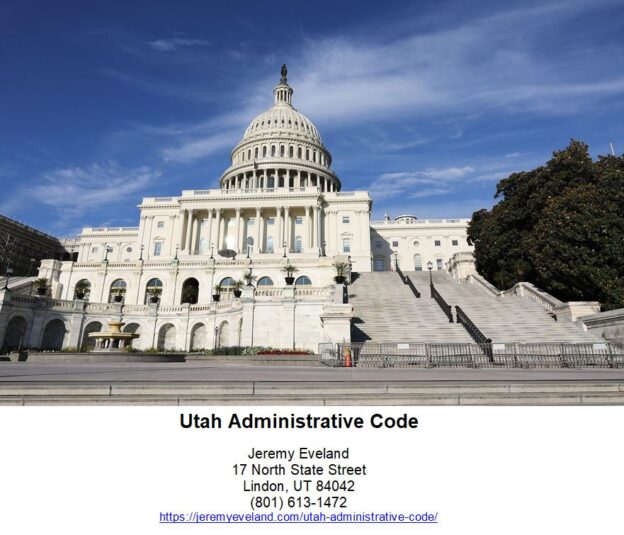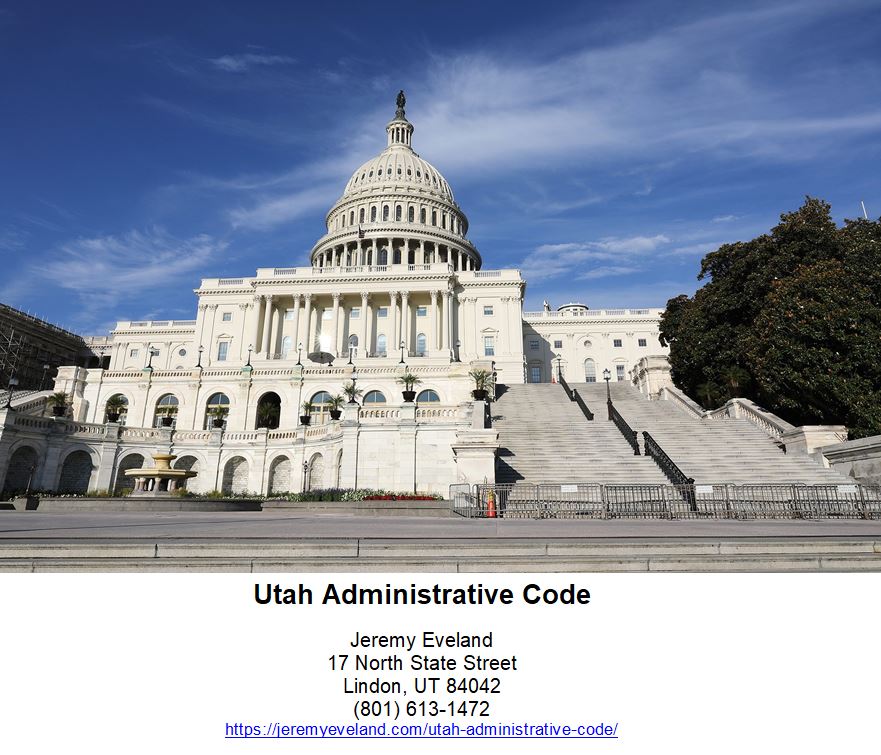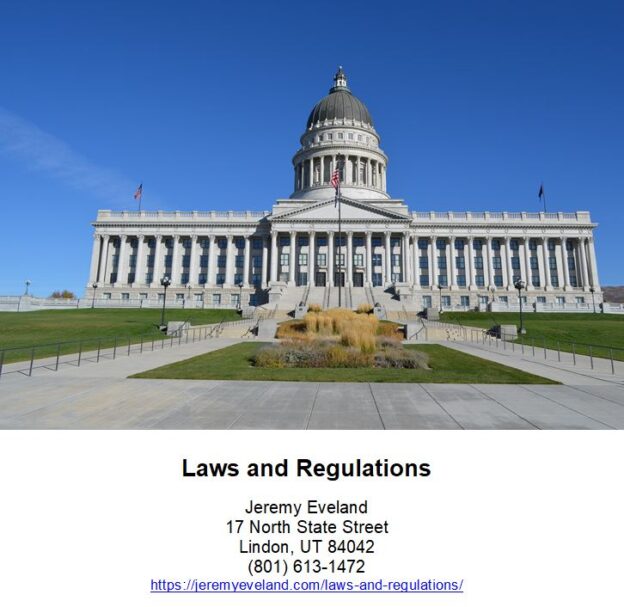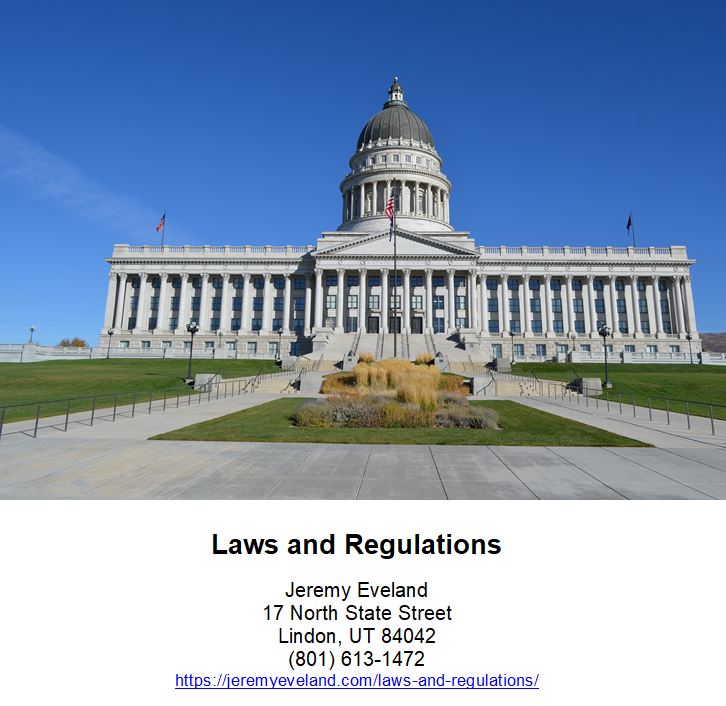How To Handle Customer Complaints In Utah
Are you a business owner in Utah who's struggling with customer complaints? Dealing with dissatisfied customers can be a daunting task, but it's crucial to handle these situations wisely to maintain your reputation and retain loyal customers.
In this article, we'll provide you with best practices and legal information specific to the state of Utah, so you can confidently handle customer complaints.
Firstly, it's important to understand your customers' expectations. Every business operates differently, and what may be acceptable in one industry or region might not be in another. You need to set clear expectations for your products or services and communicate them effectively to your customers. This will help minimize misunderstandings that could lead to complaints later on.
So let's dive into some practical tips that will help you manage customer complaints like a pro!
Key Takeaways
- Understanding customer expectations is crucial for effective complaint handling, and can be obtained through surveys, focus groups, and monitoring online reviews and social media comments.
- Providing excellent customer service is important for meeting customer needs, and requires a complaint management plan and employee training on complaint handling.
- Handling complaints efficiently involves taking every complaint seriously, offering solutions instead of excuses, documenting everything related to the complaint, and addressing online complaints promptly and professionally.
- Positive outcomes can result from handling complaints efficiently, including maintaining customer satisfaction and loyalty, ensuring fair and transparent business practices, and providing high-quality products or services.
Understand Customer Expectations
To effectively handle customer complaints in Utah, you need to understand their expectations and make sure you're meeting them in order to avoid legal issues and maintain a positive reputation. As a business owner, it's important to provide excellent customer service that meets the needs of your customers.
This means understanding what they expect from your products or services and ensuring that you deliver on those expectations. One way to understand customer expectations is by conducting surveys or focus groups with Utah residents who've used your products or services. This will give you valuable feedback on what they liked about your business and what areas need improvement.
You can also monitor online reviews and social media comments to see what customers are saying about your business. It's important to remember that every customer complaint should be taken seriously, regardless of how small it may seem. By addressing complaints promptly and professionally, you can prevent negative word-of-mouth advertising and potential legal issues down the line.
Make sure all employees are trained on how to handle complaints effectively, including active listening skills, empathy, and problem-solving techniques. By understanding customer expectations and providing excellent customer service, you can create a positive reputation for your business in Utah.
However, even with the best intentions, there will always be some level of dissatisfaction among customers at times. That's why it's crucial to create a complaint management plan that outlines how complaints will be handled within your organization without delay or hesitation.
Create a Complaint Management Plan
Developing a complaint management plan is crucial for businesses in Utah because customer complaints can negatively impact the reputation and success of the business. In fact, studies show that 91% of unhappy customers will never return to the business. By creating a complaint management plan, you can ensure that all complaints are handled efficiently and effectively, ultimately leading to happier customers and increased revenue.
To create a complaint management plan, start by gathering information on common customer complaints in your industry. This could include issues with quality control, communication, or delivery times. Once you have identified these common complaints, develop clear procedures for handling each type of complaint. For example, if a customer complains about a product defect, determine how the issue will be addressed and resolved.
It's also important to establish roles within your team when it comes to handling customer complaints. Who will be responsible for receiving and logging complaints? Who will be responsible for investigating and resolving them? These roles should be clearly defined in your complaint management plan to ensure that everyone knows what is expected of them.
To help you get started on developing your own complaint management plan, use the table below as a guide:
| Step | Description |
|---|---|
| 1. | Identify common customer complaints |
| 2. | Develop procedures for handling each type of complaint |
| 3. | Establish roles within your team for managing complaints |
| 4. | Implement training programs for employees |
By creating a comprehensive complaint management plan tailored specifically to your business in Utah, you can ensure that all customer complaints are handled professionally and efficiently. However, simply having a plan isn't enough – it's equally important to train employees on proper complaint handling techniques. This will be discussed in more detail in the next section.
Train Employees on Complaint Handling
You need to ensure your team is prepared to handle any concerns that may arise from your customers by training them on complaint handling. This can help improve customer satisfaction and loyalty, which are crucial for the success of any business.
To effectively train employees on complaint handling, consider implementing a structured training program that covers key topics such as active listening, problem-solving, and conflict resolution. This will help your team develop the necessary skills to address customer complaints in a professional and efficient manner. Additionally, provide ongoing training opportunities to keep employees up-to-date with the latest best practices and techniques for resolving issues.
As you train your team on complaint handling, emphasize the importance of maintaining a positive attitude throughout the process. Encourage employees to remain calm and patient when dealing with upset customers, as this can help diffuse tense situations and build trust. Additionally, teach them how to apologize sincerely when appropriate, which can go a long way towards repairing damaged relationships.
Ultimately, effective employee training is essential for creating a culture of exceptional customer service within your organization. By investing in your team's development and equipping them with the skills they need to handle customer complaints properly, you'll be well-positioned to build lasting relationships with your customers based on mutual respect and trust.
Listen and empathize with their concerns before offering solutions or alternatives that would make both parties happy.
Listen and Empathize
One crucial aspect of resolving issues with customers is truly listening to their concerns and showing empathy towards their situation. When a customer approaches you with a complaint, it's important to give them your undivided attention and actively listen to what they have to say. This means avoiding distractions such as checking your phone or looking around the room while they talk. By giving them your full attention, you show that you value their feedback and are committed to finding a solution.
Another way to demonstrate empathy is by putting yourself in the customer's shoes. Try to understand their perspective and how the issue has impacted them personally. This can help you respond in a more compassionate and understanding manner, which can go a long way in diffusing tense situations. Acknowledge their feelings and validate their experience by saying things like "I'm sorry this happened"or "I can understand why you feel frustrated".
To help guide your interactions with customers, consider using the following table:
| Listen | Empathize |
|---|---|
| Give the customer your undivided attention | Put yourself in the customer's shoes |
| Avoid distractions while they speak | Understand their perspective |
| Show that you value their feedback | Respond with compassion |
| Be committed to finding a solution | Acknowledge their feelings |
By implementing these techniques, you'll not only be better equipped to handle customer complaints but also improve overall satisfaction levels among your clientele. Remember that an unhappy customer can quickly become a vocal critic online or through word of mouth, so it's crucial to address any issues promptly and professionally.
Transitioning into our next section on resolving complaints quickly, keep in mind that empathizing with your customers is just one step towards effective conflict resolution.
Resolve Complaints Quickly
If you want to put out fires before they spread, dealing with customer complaints should be as quick as lightning. Time is of the essence when it comes to resolving customer complaints. The longer a complaint goes unaddressed, the more likely it is that the customer will become frustrated and take their business elsewhere.
By resolving complaints quickly, you demonstrate your commitment to providing excellent customer service. To resolve complaints quickly, it's important to have a system in place for handling them. This could mean designating one employee as the point person for customer complaints or implementing an online portal where customers can submit their concerns. Whatever system you choose, make sure it allows you to respond promptly and efficiently.
One way to speed up complaint resolution is by offering solutions rather than excuses. When a customer brings a problem to your attention, focus on what you can do to fix it rather than giving reasons why it happened in the first place. If possible, offer a solution right away so that the customer knows you're taking their concern seriously.
In addition to resolving complaints quickly, documenting everything related to the complaint is crucial for legal protection and improving future service. Keep track of all communication with the customer regarding their issue, including dates and times of phone calls or emails exchanged. This documentation may come in handy if legal action arises down the line or if changes need to be made within your business practices based on recurring issues brought up by customers.
By resolving complaints quickly and thoroughly documenting them afterwards, you can ensure that your business maintains strong relationships with its customers while also minimizing potential legal risks in Utah.
Document Everything
Make sure to keep a detailed record of all communication with the customer when handling their concerns, including dates and times of phone calls or emails exchanged. This is important because it serves as evidence in case the complaint escalates into a legal issue. Your records should include every detail about the customer's concern, such as what they complained about and how you resolved it. Consider creating a table like the one below to ensure that you don't miss any important information.
| Date | Time | Customer Name | Complaint Details |
|---|---|---|---|
| MM/DD/YYYY | 00:00 AM/PM | John Doe | Product defect |
| MM/DD/YYYY | 00:00 AM/PM | Maggie Smith | Delivery delay |
| MM/DD/YYYY | 00:00 AM/PM | Ralph Johnson | Billing error |
Documenting everything also helps you identify trends in customer complaints. For example, if multiple customers complain about the same issue, it could indicate an underlying problem that needs to be addressed immediately. Additionally, having records can help improve your customer service by allowing you to look back at past complaints and see what worked and what didn't.
In Utah, businesses are required to keep records of all customer complaints for at least three years. Failure to do so could result in legal consequences if a complaint turns into a lawsuit. Therefore, make sure to save all relevant documents electronically or physically depending on your preference.
Now that you know how important it is to document everything when handling customer complaints in Utah, let's move on to addressing online complaints.
Address Online Complaints
Now that you've documented the customer complaint, it's time to address any online complaints that may have been made. In today's digital age, it's common for customers to vent their frustrations on social media platforms or review websites. It's important to take these complaints seriously and handle them promptly.
Addressing online complaints can be daunting, but it's crucial for your business reputation. Here are some tips on how to effectively handle online customer complaints in Utah:
- Respond promptly and professionally: Acknowledge the complaint and offer a solution if possible.
- Take the conversation offline: Provide a phone number or email address for the customer to contact you directly so you can resolve the issue privately.
- Keep your response concise: Avoid getting into lengthy arguments or providing too much information publicly.
- Monitor your online presence regularly: Stay aware of any new complaints so you can respond quickly.
By addressing online complaints, you show potential customers that you care about their experience with your business. A prompt and professional response can turn an unhappy customer into a loyal one.
Now that you know how to address online complaints, let's move on to legal considerations when handling customer complaints in Utah.
Legal Considerations
Don't underestimate the impact of legal considerations when dealing with customer complaints in Utah – it's important to protect your business and reputation.
As a business owner, you need to be aware that customers may take legal action against you if their complaint is not resolved satisfactorily. It's essential to handle each complaint professionally and promptly.
To avoid any legal issues, follow the guidelines set by Utah's consumer protection agency. Ensure that your business practices are fair and transparent, and you're providing high-quality products or services. Additionally, make sure all terms and conditions are clearly stated on your website or in any contracts.
If a customer files a formal complaint against your business, respond immediately. You should investigate the issue thoroughly before responding. If the complaint is valid, offer a satisfactory resolution or compensation to the affected customer. This will show that you value their feedback and care about their satisfaction.
In some cases, customers may escalate their complaints by filing claims with federal agencies such as the Federal Trade Commission (FTC). Therefore, it's crucial to keep accurate records of all communications with complaining customers. These records can help protect your business from potential legal action by providing evidence of good faith efforts made towards resolving problems effectively.
Remember that handling complaints efficiently can lead to positive outcomes for both your business and customers alike.
Frequently Asked Questions
What are the most common complaints that Utah businesses receive?
You may be surprised to learn that the most common complaints Utah businesses receive are related to customer service, specifically with regards to communication and response time.
Customers often feel frustrated when they can't get a hold of someone or have to wait too long for a response.
Additionally, issues with product quality and billing errors also rank high on the list of complaints.
However, regardless of the specific nature of the complaint, it's important for businesses to handle them professionally and promptly in order to maintain positive relationships with their customers.
How can businesses prevent customer complaints from happening in the first place?
To prevent customer complaints from happening in the first place, make sure you have clear and transparent policies in place, communicate effectively with your customers, and consistently meet their expectations.
Train your staff to handle difficult situations professionally and empathetically, and provide them with the tools they need to address any issues that may arise.
Consider implementing a feedback system that allows customers to share their experiences and concerns, so you can identify problems early on and take steps to improve your products or services.
Finally, be proactive about addressing potential issues before they become complaints by regularly monitoring customer satisfaction levels and making changes as needed.
By taking these steps, you can reduce the likelihood of receiving customer complaints and build a reputation for excellent service.
What is the best way to handle a customer who is being unreasonable or aggressive?
When dealing with an unreasonable or aggressive customer, it's important to stay calm and professional.
Listen attentively to their concerns and acknowledge their frustration. Try to empathize with them and offer a sincere apology for any inconvenience they may have experienced.
However, it's also important to set boundaries and not tolerate abusive behavior. If the situation escalates, politely inform them that you're unable to continue the conversation if they can't maintain civility.
Remember that customer service is important, but so is your own well-being and safety.
Can businesses be held legally liable for mishandling customer complaints?
Yes, businesses can be held legally liable for mishandling customer complaints. As a business owner, it's your responsibility to ensure that you handle all customer complaints in a professional and timely manner.
Failure to do so could result in legal action being taken against your company. It's important to have clear policies and procedures in place for handling customer complaints, as well as training your employees on how to handle difficult situations with customers.
By taking proactive steps to address customer complaints, you can help minimize the risk of legal liability and maintain positive relationships with your customers.
How can businesses measure the effectiveness of their complaint handling strategies?
To measure the effectiveness of your complaint handling strategies, you need to track and analyze feedback from your customers. This includes recording complaints received, their nature, and how they were resolved.
Additionally, regularly soliciting feedback from your customers through surveys or follow-up calls can provide valuable insight into areas that may require improvement. Remember, actions speak louder than words; therefore, it's crucial to take swift action when resolving complaints to demonstrate your commitment to customer satisfaction.
As the saying goes, "the proof of the pudding is in the eating."By consistently providing excellent service and taking customer complaints seriously, you'll build a loyal customer base and foster a positive reputation for your business.
Areas We Serve
We serve individuals and businesses in the following locations:
Salt Lake City Utah
West Valley City Utah
Provo Utah
West Jordan Utah
Orem Utah
Sandy Utah
Ogden Utah
St. George Utah
Layton Utah
South Jordan Utah
Lehi Utah
Millcreek Utah
Taylorsville Utah
Logan Utah
Murray Utah
Draper Utah
Bountiful Utah
Riverton Utah
Herriman Utah
Spanish Fork Utah
Roy Utah
Pleasant Grove Utah
Kearns Utah
Tooele Utah
Cottonwood Heights Utah
Midvale Utah
Springville Utah
Eagle Mountain Utah
Cedar City Utah
Kaysville Utah
Clearfield Utah
Holladay Utah
American Fork Utah
Syracuse Utah
Saratoga Springs Utah
Magna Utah
Washington Utah
South Salt Lake Utah
Farmington Utah
Clinton Utah
North Salt Lake Utah
Payson Utah
North Ogden Utah
Brigham City Utah
Highland Utah
Centerville Utah
Hurricane Utah
South Ogden Utah
Heber Utah
West Haven Utah
Bluffdale Utah
Santaquin Utah
Smithfield Utah
Woods Cross Utah
Grantsville Utah
Lindon Utah
North Logan Utah
West Point Utah
Vernal Utah
Alpine Utah
Cedar Hills Utah
Pleasant View Utah
Mapleton Utah
Stansbury Par Utah
Washington Terrace Utah
Riverdale Utah
Hooper Utah
Tremonton Utah
Ivins Utah
Park City Utah
Price Utah
Hyrum Utah
Summit Park Utah
Salem Utah
Richfield Utah
Santa Clara Utah
Providence Utah
South Weber Utah
Vineyard Utah
Ephraim Utah
Roosevelt Utah
Farr West Utah
Plain City Utah
Nibley Utah
Enoch Utah
Harrisville Utah
Snyderville Utah
Fruit Heights Utah
Nephi Utah
White City Utah
West Bountiful Utah
Sunset Utah
Moab Utah
Midway Utah
Perry Utah
Kanab Utah
Hyde Park Utah
Silver Summit Utah
La Verkin Utah
Morgan Utah
Business Lawyer Consultation
When you need help from a Business Lawyer in Utah, call Jeremy D. Eveland, MBA, JD (801) 613-1472 for a consultation.
Jeremy Eveland
17 North State Street
Lindon UT 84042
(801) 613-1472
Related Posts
10 Tips for Negotiating Lease Agreements
Business Lawyer Spanish Fork Utah
How To Start A Non-Profit In Utah
What are the Trademark Laws in Utah
Business Lawyer Pleasant Grove Utah
How to Calculate Overtime Pay in Utah
Business Lawyer Cottonwood Heights Utah
Understanding Utah’s Consumer Protection Laws
Comprehensive Guide To Hiring A Business Lawyer
Business Lawyer Springville Utah
Mergers and Acquisitions from a Legal Perspective
Business Lawyer Eagle Mountain Utah
Understanding Anti-Trust Laws in Utah
Business Lawyer Cedar City Utah
Understanding LLC Laws in Utah
Business Lawyer Kaysville Utah
Understanding Utah’s Non-Profit Laws
Business Lawyer Clearfield Utah



















